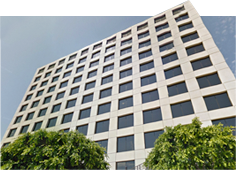International Entrepreneur Rule (IER) Takes Effect on December 15, 2017
U.S. Citizenship and Immigration Services (USCIS) Announced on December 15, 2017, that it will begin accepting applications under the International Entrepreneur Rule (IER).
As we reported last year, the rule was established to allow certain entrepreneurs and business owners the ability to enter the U.S. to seek investment and grow their business. Regardless of one’s stance on immigration policy, they would be hard pressed to argue that allowing talented and promising entrepreneurs and job creators — who are able to attract investment for their ideas and plans — is a negative.
Unfortunately, the Trump Department of Homeland Security (DHS) published a delay rule on July 11, 2017 to further review the IER. The delayed effective date of the IER was meant to give immigration authorities time to review the IER, and if the Trump DHS deems necessary, to propose a new regulation to end the IER parole program.
However, on Dec. 1, 2017, the U.S. District Court for the District of Columbia vacated the delay rule as a result of litigation in National Venture Capital Association v. Duke. DHS has stated it will comply with the court order and implement the IER parole program, but that it is in the final stages of publishing a notice of proposed rulemaking seeking to eliminate the IER.
When and if the aforementioned new rule eliminating the IER will be published has not been announced. For now, the IER Parole Request program is open for business and applications can be submitted to US Immigration authorities. Such applications will be processed until and unless there is a change in the rule.
In order to qualify for the IER Program; Entrepreneurs applying for parole under this rule must demonstrate that they:
- Possess a substantial ownership interest in a start-up entity created within the past five years in the United States that has substantial potential for rapid growth and job creation.
- They have a central and active role in the start-up entity such that they are well-positioned to substantially assist with the growth and success of the business.
- They will provide a significant public benefit to the United States based on their role as an entrepreneur of the start-up entity by showing that:
-
- The start-up entity has received a significant investment of capital from certain qualified U.S. investors with established records of successful investments
- An applicant would generally be able to meet the investment standard by demonstrating that the start-up entity has received investments of capital totaling $250,000 or more from established U.S. investors (such as venture capital firms, angel investors, or start-up accelerators) with a history of substantial investment in successful start-up entities. The qualifying investments must have been received from 365 days to 18 months immediately preceding the filing of an application under the IER.
- The start-up entity has received significant awards or grants for economic development, research and development, or job creation (or other types of grants or awards typically given to start-up entities) from federal, state, or local government entities that regularly provide such awards or grants to start-up entities; or
- They partially meet either or both of the previous two requirements and provide additional reliable and compelling evidence of the start-up entity’s substantial potential for rapid growth and job creation.
- The start-up entity has received a significant investment of capital from certain qualified U.S. investors with established records of successful investments
Also, the applicant must merit a favorable exercise of discretion. Adverse immigration or criminal history will weigh heavily towards not meeting this criterion.
Despite the previous litigation and future possible changes to the IER, USCIS has confirmed that it is currently accepting applications. Application packages are submitted to the USCIS Dallas Lockbox facility. Once approved, the entrepreneur must visit a U.S. Embassy or Consulate abroad to obtain permission to travel to the U.S. Concurrently with the application, an entrepreneur may submit Advance Parole requests for spouses and unmarried children to accompany them to the United States, and the spouse is eligible for a work permit once in the U.S.
How long it will take the USCIS to process these applications is not yet known. Moreover, USCIS has not yet announced whether applications received during the filing period will be grandfathered in and immune from future changes to the rule — if such changes are ever enacted. Entrepreneurs applying, should be aware that changes to the rule may come in the future and applicants who are eligible would be well-advised to act quickly in getting their case submitted if they qualify.






